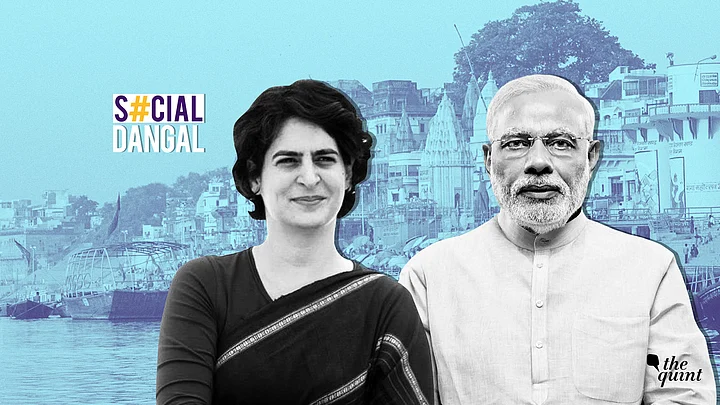On Thursday, 25 April, Prime Minister Narendra Modi filed his nomination from Varanasi in the presence of NDA allies.
Among those present were Bihar Chief Minister Nitish Kumar, Shiromani Akali Dal leader Parkash Singh Badal, Shiv Sena chief Uddhav Thackeray, AIADMK leaders O Panneerselvam and M Thambidurai and BJP leaders such as Uttar Pradesh Chief Minister Yogi Adityanath, Union ministers Rajnath Singh, Sushma Swaraj and Nitin Gadkari.
Similar scenes played out in Varanasi five years ago too, when Modi filed his nomination for the 2014 Lok Sabha election as the Prime Ministerial candidate of the National Democratic Alliance.
But in a sharp contrast to 2014, Modi was accompanied by all his alliance leaders in 2019. This sent a message that a strong alliance is backing Modi and the BJP, which perhaps, was not the case in 2014 when the Modi wave was sweeping the nation.
“Why did he need all of his allies from across the country to come for his nomination? Why is it suddenly NDA and not Modi as has been trumpeted a million times by the man himself?” Journalist Aiyshwarya Mahadev pointed it out in a tweet.
Congress’ official Twitter handle also tweeted along the same lines. “In his 2019 nomination Mr Modi invited all his alliances because BJP knows that they will not win majority and hence now have to rely on alliance parties,” the handle tweeted quoting former Union Minister Rajeev Shukla.
Journalist Sahil Joshi also observed the biggest difference between 2014 and 2019. “In Varanasi it was Modi show in 2014 , in 2019 BJP needs allies and NDA in Varanasi,” he tweeted.
Maybe this is a sign that Modi does not want to ride on individual politics anymore. He has realised that this time around, the key for success is the backing of strong allies.
(At The Quint, we question everything. Play an active role in shaping our journalism by becoming a member today.)

